Veolia is the world reference in the management of solid or liquid non-hazardous or hazardous waste. The Company is involved in the entire waste life cycle, from collection to final treatment, and makes its recovery a priority.
As a stakeholder in the circular economy, Veolia develops innovative solutions to increase the rate of waste recycling and conversion into matter or energy.
DISCOVER OUR BUSINESSES
- Waste collection
- Waste material recovery
- Waste-to-energy
- Material recovery of organic waste
- Treatment of hazardous waste
- Dismantling and remediation
- Urban cleaning
- Industrial maintenance and cleaning
Waste collection
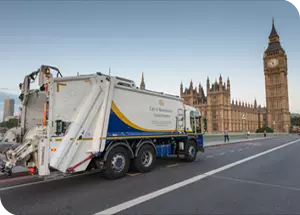
Household waste, non-hazardous commercial and industrial waste, construction waste, organic waste, hazardous industrial and commercial waste: the diversity of waste categories makes their collection a logistical challenge.
Veolia offers multiple collection systems adapted to the territorial and economic stakes of its customers. Waste of the same nature is gathered in collection centers where it is compressed before being sent to an appropriate sorting or treatment site.
Waste material recovery
Veolia transports solid waste to specialized sorting centers. Waste resulting from the selective collection of household waste and non-hazardous industrial and commercial waste is sent to high performance sorting centers managed by the Group. Many patented processes, such as auto-adaptive sequential sorting (TS2A), are used to achieve recovery rates of up to 95 %.
The recovered waste then becomes secondary raw materials for industry. Veolia also recycles complex waste, such as batteries and electronic cards.
210 sorting centers and 390 transfer platforms managed by Veolia in 2016.
210 sorting centers and 390 transfer platforms managed by Veolia in 2016.
Waste-to-energy
Non-recyclable non-hazardous waste is transported to incineration plants or landfills. The incineration process produces energy in the form of steam which can either supply district or industrial heating networks, or be converted into electricity using turbines.
The electricity generated is used to power the national distribution network. Veolia captures the gas generated by the fermentation of organic waste in its landfills. This biogas can be directly delivered to a distribution network, used to produce electricity through turbines or engines, or used as fuel for vehicles.
Veolia operates 63 household waste incineration plants and 53 non-hazardous waste landfills equipped with biogas recovery systems.
Veolia operates 63 household waste incineration plants and 53 non-hazardous waste landfills equipped with biogas recovery systems.
Material recovery of organic waste
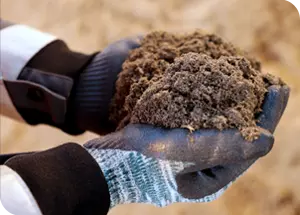
Sewage sludge, green waste and organic waste from households or the catering industry, the food processing industry or the agricultural sector are recovered by subsidiaries specialized in the treatment of organic waste. Treatment is either achieved through controlled composting or anaerobic digestion in biogas plants.
The compost produced is used as fertilizer for agriculture and the methane generated by fermentation is recovered using the same procedures as those for landfill biogas.
Veolia operates 104 composting platforms and 7 biogas plants from which biogas is recovered.
Veolia operates 104 composting platforms and 7 biogas plants from which biogas is recovered.
Treatment of hazardous waste
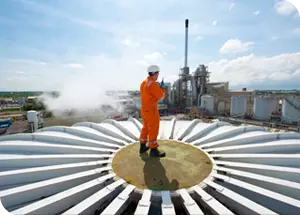
Veolia is a world leader in hazardous waste treatment, recycling, and recovery and soil remediation thanks to its specialized subsidiaries.
According to their origin and composition, hazardous waste can be incinerated or physicochemically treated in dedicated facilities or stabilized and buried in special landfills.
Veolia owns 27 incineration plants dedicated to hazardous industrial waste, 46 physicochemical and stabilization plants,
15 hazardous waste landfills and 35 specialized recycling plants.
Veolia owns 27 incineration plants dedicated to hazardous industrial waste, 46 physicochemical and stabilization plants, 15 hazardous waste landfills and 35 specialized recycling plants.
Dismantling and remediation
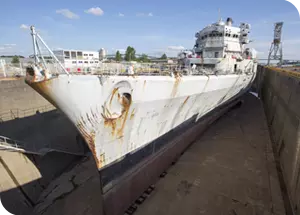
Veolia manages projects to dismantle industrial plants and equipment which have reached the end of their service life, such as aircraft, ships, trains and oil platforms. The Group disassembles, removes asbestos, recovers recyclable materials, treats non-recyclable waste and provides site remediation.
Veolia is also involved in rehabilitating areas where the footprint of older pollution still exists: brownfield redevelopment, cleaning up accidental spills and upgrading of industrial sites.
Urban cleaning
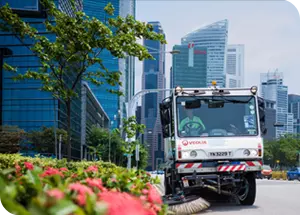
Cleanliness is a determining factor of cities’ attractiveness as well as a public health and security issue for citizens.
Veolia offers a continuous urban cleaning service based on a performance commitment which includes the maintenance and cleaning of public areas, mechanized street cleaning services and treatment of façades. The Group has also developed emergency services to handle accidental pollution on public roads or industrial sites.
Industrial maintenance and cleaning
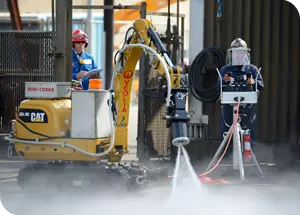
For its industrial customers, the Group services and maintains production lines and provides a full range of specialized services to optimize the performance of production facilities and extend their service life.


